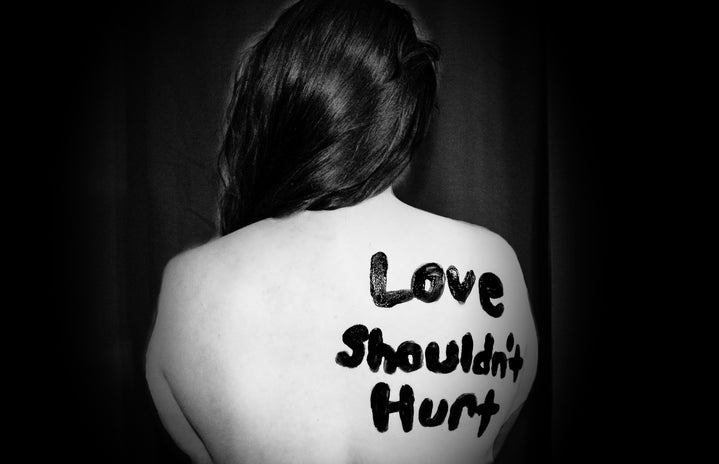When it was good, it was nothing short of magnificent; when it was bad, it was soul-crushing. There exists a kind of love that begins with tender promises and ends with deep wounds, a love that slowly morphs you into a stranger—an entity you scarcely recognize and ultimately come to loathe. Somewhere along the way, the lines blur; you lose sight of where you end and they begin, as if your very identity is being erased—layer by layer—behind smiles and whispered reassurances.
But it never starts that way. There’s a reason people are drawn into these entangled relationships, and it runs deeper than mere longing for love. Psychologists assert it’s hardwired into our biology—our intrinsic need for connection and attachment. From the moment we take our first breath, we seek bonds that promise safety and survival. When someone extends that bond, making you feel seen, understood, and cherished, your brain floods with oxytocin—the so-called “love hormone”—and suddenly, you find yourself tethered to them. It’s a warmth that feels like belonging. But when that same person begins to withdraw affection, piece by piece, your brain clings even harder, desperate to reclaim that elusive feeling of safety. This cycle of connection and withdrawal creates a powerful, almost addictive pull, explaining why so many endure the pain, believing that if they could only be better or do more, they might return to that place where everything felt right. At its core, what you’re fighting for isn’t just love; it’s the sense of security, of being needed and valued, that keeps you holding on.
It starts innocently enough: the thrill of connection, the intoxicating rush of feeling seen, the comfort of believing you’ve found someone who understands you in ways no one else can. Your heart opens, unguarded, and you think, this must be what love is supposed to feel like. And for a while, it is. You share laughter, secrets whispered late into the night, and everything seems perfect. You are vulnerable, honest, bare—and it feels like relief, like you’ve finally found a safe haven. You have finally found your person.
But then, like a storm gathering on a distant horizon, the cracks begin to reveal themselves. It’s subtle at first—a careless comment here, a slight dismissal there. You tell yourself it’s nothing. Surely you’re imagining things. They love you; they said so. You cling to the joyful moments—the ones that felt magnificent—and ignore the creeping unease that lingers just beneath the surface. After all, love must have its flaws and rough patches, right?
But love should never twist you into knots. It should not make you feel like you are hard to love, that you must earn affection through enduring pain. True love does not mask its cruelty as concern. Yet slowly, almost imperceptibly, manipulation seeps in, tightening around your heart like a vice. Gaslighting—a term you never thought you’d associate with them—becomes the language of your conversations. “That never happened,” they say, and for a fleeting moment, you wonder if maybe it didn’t. “You’re overreacting,” they insist, and you begin to question your own emotions, as if feeling hurt is a failure on your part.
They twist your thoughts with deft precision, so subtly that you hardly notice it happening. Psychologists describe gaslighting as a form of psychological abuse that makes victims doubt their perception of reality. It’s not about blatant lies; it’s about the subtle distortions that compel you to question what you know to be true. By planting these seeds of doubt, they keep you unsteady and off-balance, making you easier to control.
When they’re kind, it feels like everything; when they’re not, it feels like you’re nothing. You live for the moments of warmth, desperately clinging to the reminders of why you fell for them in the first place. Yet those moments become scarce, and you cling to them with increasing desperation, convinced that if you could just try harder, if you could change yourself a little more, they would stay. You tell yourself this is love—that love must be earned through sacrifice and endurance, because they told you so. Deep down, you dread acknowledging that you might not be worth loving as you are.
It’s a cruel cycle. Science explains this through the concept of intermittent reinforcement. When affection is given inconsistently—like a rare spark of warmth in an otherwise frigid relationship—the brain becomes addicted, much like a gambler drawn to the allure of a slot machine. The unpredictability fuels your craving for those moments of kindness, and you find yourself enduring endless hurt just for another taste of the love you once cherished. This keeps you trapped, perpetually waiting, always hoping for a change that never materializes.
They make you feel small, so quietly that you hardly notice the walls closing in around you. They isolate you, gradually at first—“I just want to spend time with you,” they say—until you’re distanced from those who truly care, and the world outside feels alien. When you try to reach out, attempting to drift back toward your own life, they sow guilt. “Why would you want to spend time with them instead of me?” they ask, turning your yearning for connection into a source of shame. They shrink your world until they are all that remains.
As time slips by, a gradual realization dawns on you. You start to see the truth of what has been unfolding. They’ve skillfully convinced you that no one else could possibly understand or love you as they do. With subtle manipulation, they’ve distorted your self-perception, leading you to view yourself through their narrow lens—flawed, difficult, and unworthy. They’ve sown seeds of self-doubt so deeply that you’ve lost touch with the feeling of being whole, of being loved unconditionally and without fear.
You find yourself avoiding mirrors, for when you look, you see a stranger. Someone who flinches at the thought of speaking up, hesitating before every word, terrified of saying the wrong thing and triggering another round of accusations. You find yourself shrinking, apologizing, justifying their behavior to yourself and others, because the alternative—admitting that you’ve been manipulated, that you’ve lost yourself—is far too painful to face.
The truth is, those who inflict such pain on others often battle their own demons. Psychologically, manipulation and control can serve as a means for them to assert power where they feel powerless, to fill a void where they feel inadequate. Studies reveal that narcissistic tendencies and emotional abuse frequently arise from deep-seated insecurities, a desperate need for validation, and an abiding fear of abandonment. They may create chaos to distract from their own turmoil, or tear others down to feel momentarily taller. But this behavior reflects their worthlessness, not yours; it is a mirror reflecting their fractures and fears.
They made you doubt yourself, instilling the belief that love is conditional, that your worth hinges on bending, breaking, and shrinking to fit their demands. They led you to believe that if you weren’t perfect, if you weren’t exactly what they wanted, then you didn’t deserve affection. They’ve left scars that run deep, wounds that make you flinch at the thought of trusting again. But those wounds do not define you. They serve as evidence of your resilience, a testament to the strength it takes to survive a love that was never truly love at all.
Life is too short and precious to spend shackled by someone else’s pain. The world is cruel enough without adding the burden of a love that demands you erase parts of yourself. You deserve to be whole, to be loud, bright, and unapologetically you, free from the weight of another’s insecurities. You deserve to feel safe in your own skin, to laugh without fear, to love without conditions. You deserve to walk away from what hurts, to say no to what doesn’t serve you, and to choose yourself—even if it means walking alone for a while.
You are not hard to love. You are not too much, nor not enough. You are a constellation of all the beautiful, messy, complicated elements that make you, you. And there will be those who recognize this truth, who see you and cherish it—not try to change it, not mold you into something more convenient. Real love will never make you feel you must be perfect to be worthy. It will remind you that you are enough, even on the days when you struggle to believe it yourself.
Reclaim your power. Reclaim your joy, your laughter, your freedom. Take back every piece of yourself they tried to steal, for those pieces are sacred, and they belong to you. Release those who cannot see your worth, for life is too fleeting to be lived in fear, to be anything less than everything you are destined to become. You deserve a love that feels like sunlight—steady, warm, unending. You deserve to be chosen, day after day, and most importantly, to choose yourself—without hesitation, without apology.
Reclaiming yourself after being shattered isn’t just survival—it’s your triumph. You are not defined by the scars they left or the doubts they seeded. You are the strength that refused to bow, the light that, even in their darkest moments, never flickered out. Your resilience is proof that you cannot be erased, no matter how hard they try. You deserve a love that lifts you, a love that feels like peace, not war. And most of all, you deserve to be entirely, boldly, and beautifully yourself—unshaken, unafraid, and unbound. This is your power, and it is yours to reclaim.






